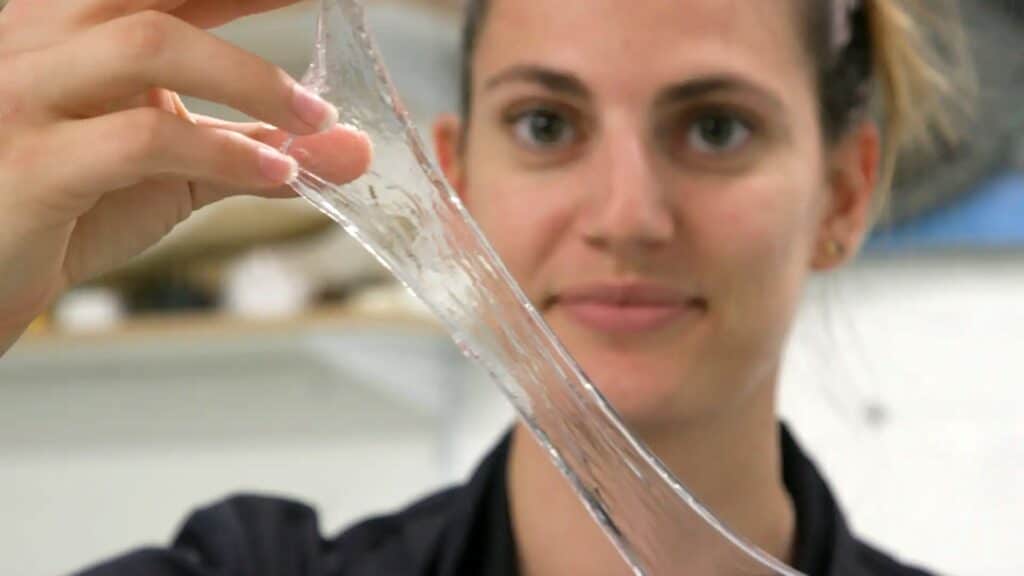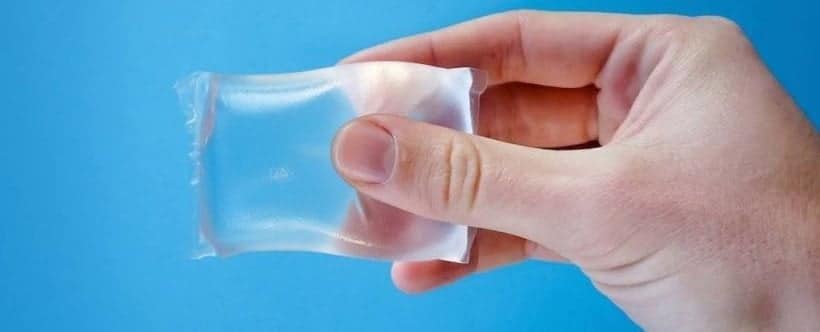La London startup Notpla has created an alternative to plastic from algae, it is biodegradable and even edible. It is hoped it will help make a dent in the 300 million tonnes of plastic waste humans generate every year.
Notpla's natural plastic wrap is biodegradable within four to six weeks, the company says, compared to the several hundred years it takes for synthetic plastic to biodegrade.
The membrane is made up of algae grown in the north of France. It is dried and ground into a powder, then a secret recipe turns it into a thick, viscous fluid, which dries to form a plastic-like substance.
It all started with a “bubble” of water to drink
Notpla rose to fame five years ago by inventing actual edible “water pods” that you swallowed after use. They were a hit among runners at the London Marathon and other events. Today the company is exploring other uses for the technology.
Algae are greener than starch-based alternatives as they don't need land or time to grow.
“It's one of the most abundant resources,” said the Notpla co-founder Rodrigo García. “One of the algae we use grows up to 1 meter per day. Can you imagine something growing that fast? You don't need fertilizer, you don't need to add water, and it's a resource we've used for a long time."
Notpla: new packaging, same planet
By the end of the year, Notpla will launch a new line of disposable food containers free of synthetic chemicals and covered with a waterproof and oil-resistant coating.
The cardboard completely decomposes in three to six weeks, respect to three months for untreated cardboard e hundreds of years for carton coated with a type of plastic known as PLA.
“What we've done is replace PLA with our own natural material that degrades naturally like a fruit or vegetable,” he says Juno Wilson, project manager and business manager of Notpla.

A deadly enemy
Single-use plastics are everywhere in our daily lives, accounting for over half of the 300 million tons of plastic produced each year.
This makes some people skeptical of the kind of impact these small-scale alternatives actually have.
A survey conducted by Everyday Plastic founder Daniel Webb revealed that we are throwing away even more plastic this year than last. And much of it, about 8 million tons a year, ends up in the ocean.
The pandemic has exacerbated the problem.
“Before lockdown, we found that people were throwing away around 99 pieces of plastic in just one week,” Webb said. “During lockdown, we found that 128 pieces of plastic were thrown away by households in just one week, a difference of around 25 to 30 per cent.”
Notpla's founders see plastic use as a difficult addiction that needs to be broken. They are working on new packaging for food and drinks, as well as ready-to-assemble clothing and furniture screws.
“It's about impact. We started because we wanted to be part of a solution to this plastic crisis. That's what drives this whole team,” the co-founder said Pierre Pallier. “It's a really important problem to work on.”


